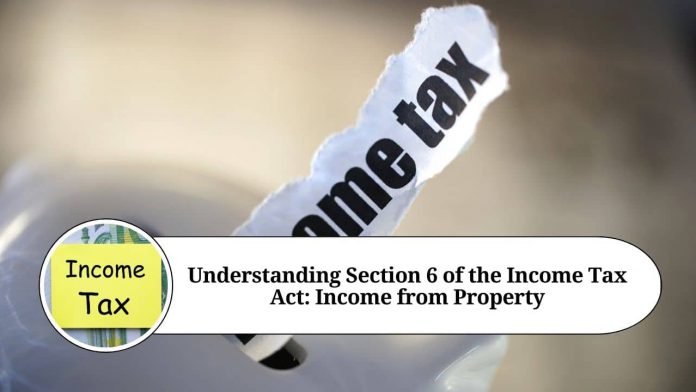The Income Tax Act is the legislation that governs the taxation of income in Canada. Section 6 of the Act deals with income from property, which includes income earned from rental properties, interest income, dividends, and other investment income.
Types of Property Income
There are several types of income that fall under the category of property income. Some of these include:
- Rental Income: This includes income earned from the rental of properties such as apartments, houses, commercial spaces, and other real estates.
- Interest Income: Interest income is earned from investments such as bonds, savings accounts, and GICs (Guaranteed Investment Certificates).
- Dividend Income: Dividend income is earned from investments in stocks and other securities that pay out dividends.
- Royalty Income: This type of income is earned from the use of intellectual property such as patents, copyrights, and trademarks.
- Income from Business Investments: This includes income earned from investments in businesses such as partnerships, joint ventures, and limited partnerships.
Taxation of Property Income
Property income is subject to taxation at the same rates as other types of income. The amount of tax payable on property income will depend on the individual’s total income and tax bracket. The tax rates for property income are based on the individual’s marginal tax rate.
Deductions and Credits
Individuals who earn property income may be eligible for deductions and credits that can reduce their tax liability. Some of these include:
- Expenses related to rental income: Landlords can deduct expenses related to the rental of their properties, such as property taxes, insurance, maintenance, and repairs.
- Interest on borrowed money: Individuals who have borrowed money to invest in income-producing properties can deduct the interest paid on those loans.
- Capital cost allowance: Landlords can claim a capital cost allowance on the cost of their rental properties, which can reduce their taxable income.
- Dividend Tax Credit: Individuals who earn dividend income may be eligible for a dividend tax credit, which can reduce the amount of tax payable on this type of income.
Reporting Property Income
Individuals who earn property income must report it on their tax returns. The type of income and the amount earned must be reported separately. For example, rental income must be reported separately from interest income or dividend income. Failure to report property income can result in penalties and interest charges.
Conclusion
In conclusion, Section 6 of the Income Tax Act governs the taxation of income from property, which includes income earned from rental properties, interest income, dividend income, and other investment income. Property income is subject to taxation at the same rates as other types of income, and individuals who earn property income may be eligible for deductions and credits that can reduce their tax liability. It is important to report property income accurately on tax returns to avoid penalties and interest charges.
Know Other Difference:
Frequently Asked Questions:
Q: What is Section 6 of the Income Tax Act?
A: Section 6 of the Income Tax Act deals with the taxation of income from property. It specifies the types of income that can be categorized as income from property and the tax treatment of such income.
Q: What types of income are considered income from property under Section 6 of the Income Tax Act?
A: Income from property includes rent, royalties, annuities, and any other income that arises from the ownership, use, or occupation of property.
Q: What is the tax treatment of income from property?
A: Income from property is subject to tax under the head “Income from House Property” if the property is used for residential or commercial purposes. If the property is not used for any business or profession, then the income is taxed under the head “Income from Other Sources.”
Q: What is the difference between “Income from House Property” and “Income from Other Sources”?
A: “Income from House Property” is the income earned from the ownership of a property that is used for residential or commercial purposes. This income is calculated after deducting the property taxes, standard deduction, and interest paid on any loans taken to purchase or maintain the property. On the other hand, “Income from Other Sources” is the income earned from sources other than salary, business or profession, or capital gains. It includes income such as interest income, dividend income, and rental income from properties not used for residential or commercial purposes.
Q: What deductions are allowed for the calculation of income from property?
A: In the case of income from house property, the following deductions are allowed: property taxes, standard deduction of 30% of the net annual value (NAV) of the property, and interest paid on any loans taken to purchase or maintain the property.
Q: Can losses from income from property be carried forward to future years?
A: Yes, if the income from property results in a loss, the loss can be carried forward for up to 8 assessment years and set off against any income from property in the future.
Q: Are there any exemptions available for income from property?
A: Yes, there are certain exemptions available for income from property. For example, the rent received from a self-occupied property is exempt from tax, and there is no tax on any capital gains arising from the sale of a property if the sale proceeds are invested in another property or in specified bonds within a specified time limit.




















